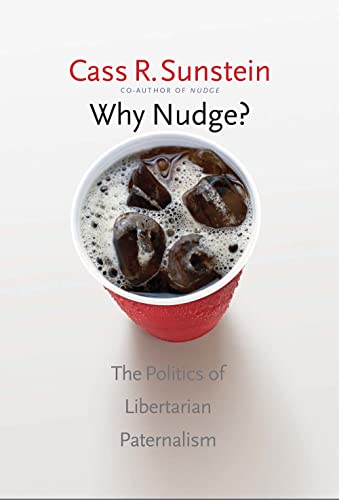Why Nudge?
Unless there is harm to others, the government cannot exercise power over people. This is the John Stuart Mill's "Harm principle", sometimes called the Liberty Principle. And governments have taken as given that individuals always take decisions in a rational way, fulfilling their preferences. As Cass Sunstein says in his last book "Why Nudge?", such a principle "raises serious doubts about many laws and regulations. Sometimes power is exercised over people in large part to promote their own good, finally people are note entirely sovereign over their body and minds". He argues in favour of paternalism in certain circumstances. We have already explained such details formerly in this blog.
Today I would like to suggest a reading to you, an excellent editorial in the Canadian Medical Association Journal. It is a call for action on obesity and specifically on food policy and taxation on sugar-sweetened beverages.
Our current approach to obesity relies on the assumption that people have choices, often fail to make the right ones, and should be educated and helped to make better choices. This view is simplistic and clearly absurd, given the continued rise in the prevalence of obesity in countries that have been tackling the problem for decades. Are millions of people really choosing to be overweight?
People are not as free to choose as we would like to believe. Neurobiological desires for sweet and high-fat foods gave humans a survival advantage in a world where food was scarce and every calorie counted. Where food is inexpensive and easily available, biological processes related to eating can mirror addiction and will lead to our destruction. We need to change our approach. We need incentives beyond educational messages. Strategies that include individual interventions, school-based nutrition and activity interventions, incentives for active commuting and changes to the built environment should continue; however, we also need robust ways to restrict portion sizes and reduce the sale of sugar-sweetened beverages and other high-calorie, nutrient-poor food products. Our government needs to consider taxation as a tool to combat the consumption of these addictive foods and beverages, just as it regulates the sale of alcohol and tobacco products for the purposes of population health.In USA, Berkeley is the first city that will intoduce the soda-tax after a recent ballot. Berkeley’s Measure D proposed imposing a 1-cent-per-ounce general tax on sugar-sweetened beverages and sweeteners used to flavor drinks. The measure will not dedicate funding to a specific cause and did not require only a majority of the vote.
I still remember how a similar measure was discarded some years ago in our country. The times to reconsider the introduction of a soda tax are coming.
